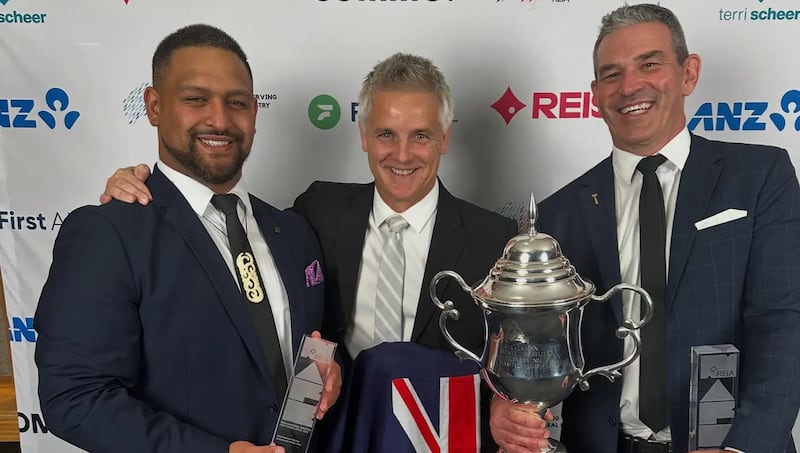Tama Emery (Ngāti Manawa, Ngāti Maniapoto) has taken out the top novice title at AUSTROS 2025, Australasia’s premier auctioneering competition, crediting his Māori heritage as the defining factor that set him apart.
The Australasia Auction Championship (AUSTROS) is considered the most prestigious auctioneering competition in Australasia.
The event draws top talent from across the region and tests participants on speed, skill, legal knowledge, and composure under pressure.
Representing Harcourts New Age, Papakura, the rising auctioneer competed against 10 other young finalists in the Novice Division at the event.
Emery said that while strict presentation standards and professional polish were expected, he could confidently bring his culture into the room, which gave him the edge.
“For me, it’s about saying I am Tama, I am Māori, first,"
"For me, it is about the relationship, whether I’m in a sales role in or an auctioneer. The mahi is the people, the by-product is the property. “
Despite being a newcomer to the auction stage, Emery said he impressed judges throughout the Rising Star Division with his calm presence, sharp delivery, and natural ability.

“My reo, my tikanga, that’s my point of difference,”
“It wasn’t about adding something in just to stand out. It’s who I am, and I wanted that to be part of how I represent myself and my people on the auction floor.”
Emery’s win is seen not only as a personal triumph but also as a
With his Novice Division win, Tama Emery has signaled that he’s one to watch in the Australasian auctioneering scene — and that a new generation of talent is ready to take the gavel.
Te tūranga o te tikanga Māori ki roto i te rāngai hoko whare
The place of tikanga Māori in the realty industry caught the public’s attention recently, following former Harcourt’s realtor, Janet Dickson’s decision not to attend a compulsory course on Te Tiriti o Waitangi.
Emery says he believes there is a place for Māori in the industry and is looking into holding auctions on marae.
“To form that relationship with our local iwi and hopefully wider after that. Really see what that can do for te ao Māori, but obviously for the industry because we need culture here.”

